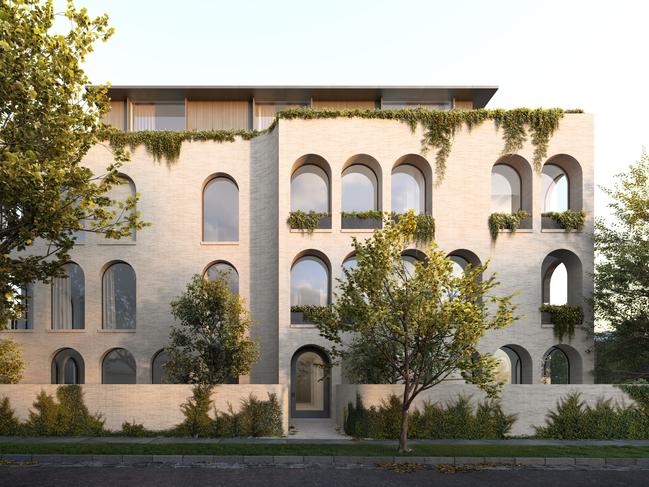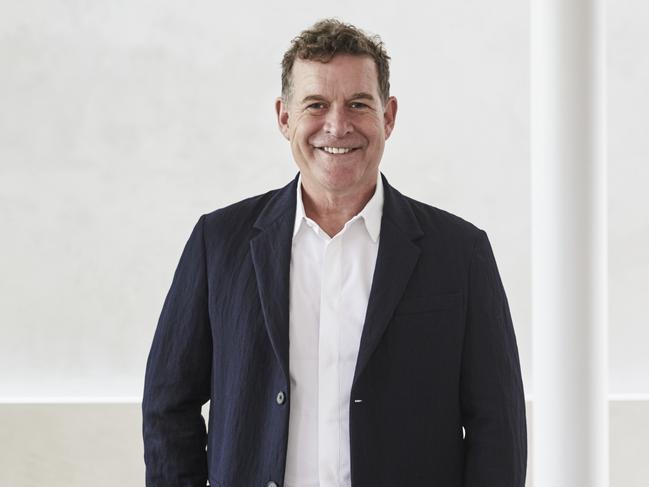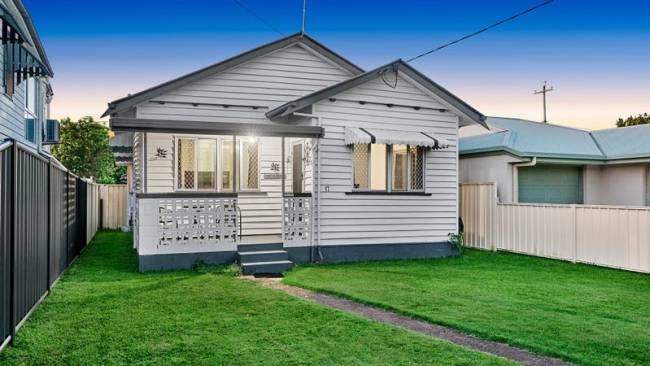Covid safe apartment design: Hampden features temperature scanners, contactless systems
A new development complete with temperature scanners and contactless systems shows the future of apartment living.
Property
Don't miss out on the headlines from Property. Followed categories will be added to My News.
Contactless intercoms and lifts, temperature scanners and virus-destroying surfaces — welcome to apartment living in a Covid world.
While home offices and larger living spaces were all the rage in the lockdown of 2020, architects are now designing apartment buildings that limit contact with surfaces and human interaction.
Internationally renowned architect Rob Mills’ latest development, Hampden, which is due to start construction next month, is shaping up to have a Covid-safe design.
Mr Mills, who operates across Australia, is also looking to take this approach with future projects.


The nine-unit development in the inner-Melbourne suburb of Armadale will include Photocatalytic Porcelain in the bathrooms. This has a product named ACTIVE 2.0 applied to it, which forms a fine skin on top of the porcelain and apparently makes it an antimicrobial surface.
It will also include improved ventilation for communal corridors and foyers to reduce the risk of airborne transmission.
Contactless systems to operate lifts and front doors will also be rolled out, as well as an intercom system with a scanner that will allow someone inside the apartment to see the temperature of a visitor.
A QR code will be used to open and operate the lift, which uses specially developed filter and UV-C light technology to disinfect the air and lower the risk of infection.

“It was just natural to begin to study way of shielding our buildings from Covid, because that seems to be the broader Australian solution to the virus,” Mr Mills said.
“While we have to live with it, we thought, let’s create environments that don’t encourage Covid transmission.
“So we looked out apartments and realised, well, they’re locking them down. So if we want to create apartment builds that people want to live in, then we have to have measures in place where residents feel more comfortable because the building is using best practice to minimise the chance of Covid.”
There are still four apartments for sale in the luxury development, ranging from $2.95 million to an eye-watering $5.4 million for the penthouse.
Leading epidemiologist at Deakin University, Professor Catherine Bennett, said proper “air filtration and turnover” was “critical” to apartment design, and pointed to Covid transmission in Australia’s hotel quarantine system as a need for this.
“It’s also lifts and stairwells where we have to be thinking differently about how we turn over and filter air in those spaces to minimise the risk of stale air,” Prof Bennett said.
Temperatures scanners could be misleading as someone may not be running a temperature because of illness — it could be because they had been exercising instead, and antimicrobial surfaces may not be necessary.

“We have to be careful we don’t get solace in this and start selling apartments because they have antimicrobial surfaces, when in fact a lot of what’s in there may not be necessary or helping,” she said.
“It’s important it’s evidence based.”
She did concede there had been a few Covid cases where authorities had though infection may have been caused by a contaminated surface, but doubled down that lifts, stairwells, corridor spaces and other shared facilities were what needed to be focused on.
Realestate.com.au director of economic research Cameron Kusher said Covid-19 may be part, but not entirely the driving before behind new approaches to apartment developments.
“A lot of the stock we’ve seen coming on to the market … have more of a focus on space and facilities,” Mr Kusher said.
“But I don’t necessarily think it’s Covid-safe as such, but I think it’s tapping into the idea that people don’t want to be stuck in small apartments. They want more space and amenity on site than they’ve had previously.”
Originally published as Covid safe apartment design: Hampden features temperature scanners, contactless systems


